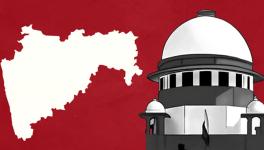Centre’s Ban on Jamaat-e-Islami of J&K Illegal, Says PUDR
Image for representational use only.Image Courtesy : Scroll
The People’s Union of Democratic Rights (PUDR) has termed the Centre’s ban on Jamaat-e-Islami of Jammu and Kashmir on February 28 as “illegal” and “part of the ongoing repression” in the Valley. The J&K administration has picked up hundreds of persons and booked them under preventive detention laws. Thus far, reports suggest over 300 persons have been detained, it said.
In a statement issued on March 15, PUDR said the ban was invoked by issuing a gazette notification, which, it said was illegal.
“Drawing upon the Unlawful Activities (Prevention) Act 1967, the notification states that the JeI is an “unlawful organisation” and the ban has been invoked with “immediate effect” (S 3(3) UAPA). The ‘immediate effect’ clause is meant to override the time lag involved in forming a Tribunal and in adjudicating the Government’s decision (S 4(4)). However, for such a decision to be implemented, the Government must provide ‘additional grounds’ as mandated in the Supreme Court judgment of 1994, Mohammad Jafar v Union of India,” read statement.
It pointed out that the UAPA, under which the JeI has been banned, stresses on the primacy of “grounds, which had not been specified in the February 28 notification. As a result, the said clause (S.3(2)) loses credibility.
“Every such notification shall specify the grounds on which it is issued” (S.3(2)). Equally, the Tribunal, when formed, must be furnished with “all the facts on which the grounds are specified in the said notification are based” (Rule 5(ii) of Unlawful Activities (Prevention) Rules, 1968). ‘Grounds’ are not ‘opinions’ or subsidiary evidence; they comprise facts which are meant to substantiate the notification. Grounds, as pointed out in another Supreme Court decision in the context of preventive detention,Vakil Singh vs. State of J&K(1974), “must contain the pith and substance of primary facts but not subsidiary facts or evidential details,” said the release.
The statement also said that the Centre’s order was also in contempt of the Supreme Court’s judgment of 1994.
The civil rights organisation said the ban and simultaneous arrests under preventive detention provisions were “part and parcel of J&K’s history as a “Disturbed Area” in which legal impunity has operated for three decades“, expressing concern about the “intensification of repression on Kashmiris in the aftermath of the Pulwama February 14 suicide bombing and the February 26-27 Indo-Pak escalation and threats of military
Get the latest reports & analysis with people's perspective on Protests, movements & deep analytical videos, discussions of the current affairs in your Telegram app. Subscribe to NewsClick's Telegram channel & get Real-Time updates on stories, as they get published on our website.
























